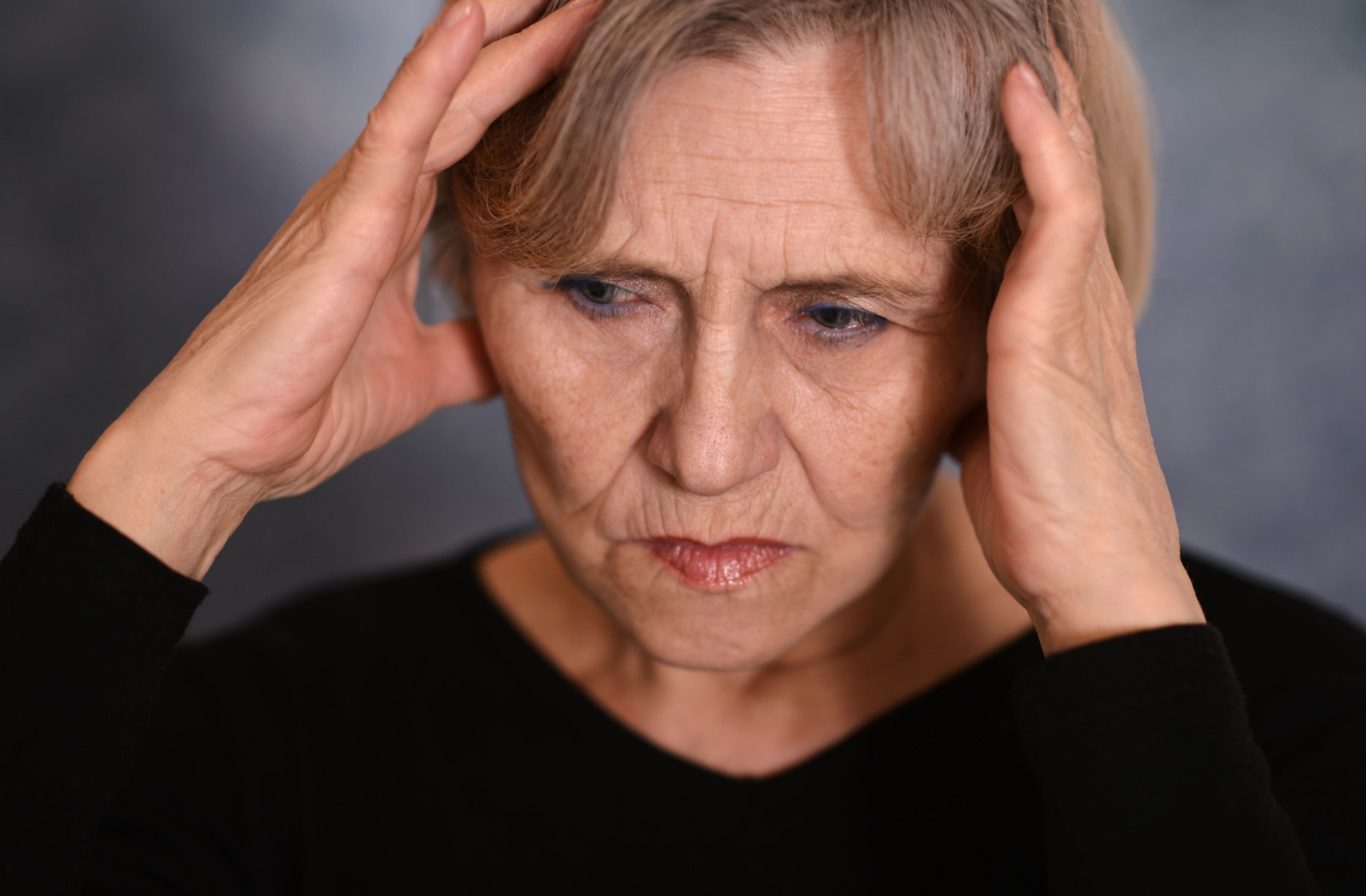Our bodies are constantly changing and adapting. While some changes can be good, others can be more problematic, presenting seniors with a unique set of difficulties and challenges in their golden years. For example: even if seniors live a healthy life, they often may develop headaches. Why do so many seniors deal with headaches?
Often, these are simply tension headaches caused by stress or sleep problems. But there are other types of headaches, like cluster headaches and migraines, that can develop because of a medical problem.
If your loved one constantly experiences severe and debilitating headaches, you should visit a medical professional for an evaluation.
Are There Different Types of Headaches?
We’ve all had a headache at some point in our lives. Most of the time, these are simply tension headaches—the feeling of a dull ache on both sides of the head simultaneously. These are typically due to muscle tension in the head and neck caused by stress, poor posture, or a lack of sleep.
But that isn’t the only type of headache. Migraines, though less common, can be much more severe. These can cause:
- Intense pounding or pulsing pain, usually on one side of the head
- Sensitivity to light, sound, and sometimes smell
- Nausea or vomiting
- Blurred vision or seeing flashes of light
- Dizziness or loss of balance
- Extreme fatigue or weakness.
They can last anywhere from a couple of hours to a few days. Migraines can be caused by anything from environmental changes to severe medical conditions, so it’s important to get a proper diagnosis for your loved one.
There are also cluster headaches, which are a little less common than tension headaches or migraines. These can be incredibly painful and debilitating, often occurring in a pattern or repeating several times throughout the day.
Why Do So Many Seniors Experience Headaches?
The aging process isn’t always kind to us. Seniors often experience changes in their hormone levels that can cause chemical adjustments in the brain. They may need to take medication for certain health conditions or start to experience a change in their sleep patterns—and all of these things can lead to headaches.
Stress is another common cause, especially in seniors. As we get older, we may find ourselves facing more significant challenges. Whether it’s caused by health issues, financial worries, or moving away from loved ones, seniors often experience a great deal of stress. Stress management is important; if you don’t manage your stress, it can have plenty of unwanted side effects on your health.
Headaches can even be caused by:
- Dehydration
- Poor nutrition
- Age-related vision problems
- Allergic reactions
- A lack of exercise
- High blood pressure
Some medical conditions are also known to cause headaches, so if your loved one is dealing with them often, consider visiting a healthcare professional to see if there’s an obvious cause.
How to Help a Senior with Headaches
When addressing headaches, it can help to take a holistic approach. It likely isn’t just one thing causing the headaches—instead, try to chip away at several factors at once to help. Try encouraging your loved one to:
- Stay hydrated
- Manage their stress where possible
- Avoid any known allergens
- Regularly exercise to improve circulation
- Take over-the-counter pain relievers for temporary relief
However, while these steps can help, they may not be able to completely stop headaches—especially if they’re being caused by a medical condition. Headaches can often be a sign that something else is afoot, so if your loved one notices they’re dealing with them just as often as before, it may be time to visit a healthcare professional.
When to Seek Professional Help
If you ever notice that your loved one is experiencing a debilitating headache out of nowhere, you should seek medical attention. While many people deal with headaches often, it isn’t normal to experience crippling, shooting pain—this may be a sign that something is wrong that requires immediate intervention.
Ask your loved one if they’re experiencing a high fever, muscle weakness, or any numbness or tingling. Pay attention to how they’re speaking and communicating in general—if they’re slurring their words or using the wrong terms, it could be a sign they’re experiencing a stroke.
Severe headaches and migraines can be an indicator of:
- Head trauma
- A tumor
- Internal bleeding
- Severe infections
- A problem developing in the brain
So if your loved one begins to experience severe pain in their head, encourage them to visit a healthcare professional as soon as they can. It’s safer to be proactive than reactive, especially when it comes to the human brain!
The Importance of Healthy Living
It’s important to do what you can to stay healthy wherever possible, and our team at All American Assisted Living at Wareham is here to support you and your loved one. In our community, we believe in helping our loved ones with a holistic approach—we want to treat our residents as a whole to provide them with a high quality of life. Contact us today to learn more!



